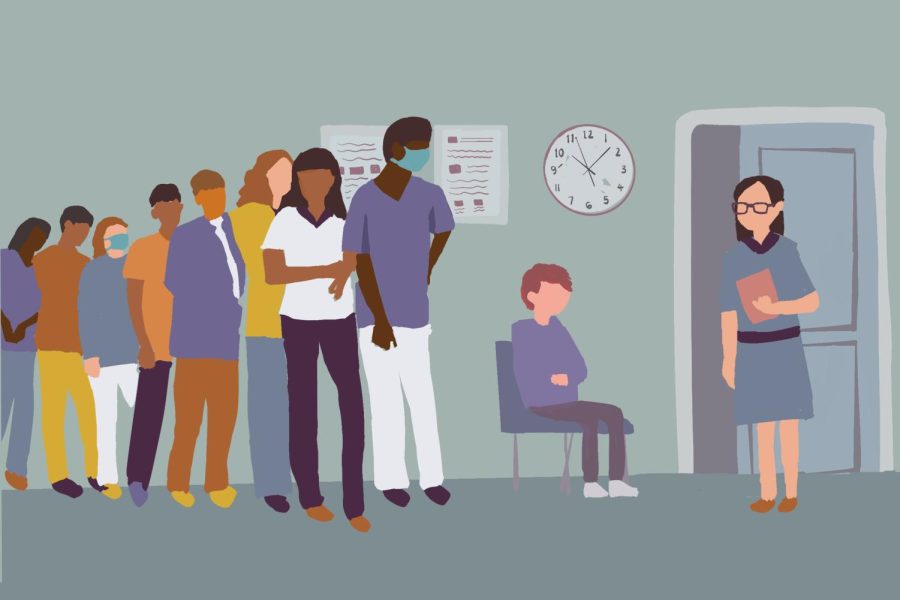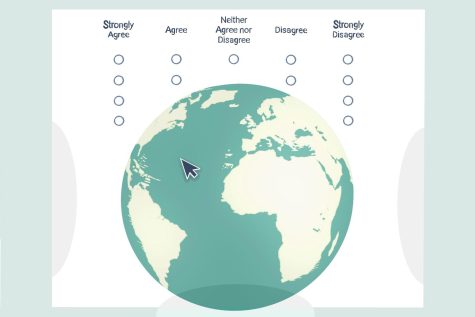Increase advisors in Health Professions Office
April 10, 2023
With surging graduate school costs nationwide, many pre-health students face obstacles in addition to grades and resume building. In Texas, however, the state has lowered tuition costs in hopes of retaining their graduates. This investment has fostered a flourishing Texas Medical School system and helped combat the state’s reputation of poor healthcare. Despite this heavy graduate focus, the undergraduate health program remains neglected.
UT provides resources for pre-health students through its Health Professions Office, but HPO only offers four senior advisors for over 5,000 pre-health students and eight health professions pathways.
HPO should have more advisors who cater to career-specific pathways.
According to HPO director Lesley Riley, the expansion of their staff has been limited by a lack of funding.
“There has been some discussion about the fact that (the College of Natural Sciences) is a very large college, and we’ve grown tremendously in the last 10 to 15 years,” Riley said. “Now we’ve become the largest college on campus, and, in some ways, the funding that comes out from the University hasn’t necessarily followed that trend.”
UT houses HPO under CNS — placing a greater strain on management and limiting overall funding. Distributing money according to CNS priorities restricts the HPO’s capabilities; HPO then must further compete with CNS research demand.
Given that pre-health professions are not major specific, HPO should be departmentalized. Health professions are becoming increasingly interdisciplinary — a trend that allows undergraduate students to pursue a health professions career while majoring outside CNS. While HPO assists students from all colleges, its financial support stems from only one.
According to former HPO employee Ella Wisdom, a Plan II and English junior, HPO focuses primarily on the pre-medical pathway. Wisdom said many other pre-health students were forced to seek advice elsewhere.
Although students of higher socioeconomic classes may not be as affected by this issue, those without such privileges face serious disadvantages. UT does not cater fairly to pre-health students from underserved backgrounds.
“We’re based on the student fees you’ve already paid, and so we’re a ‘free’ resource for students,” Riley said. “Given that we have such good relationships with the professional schools, I think we’re a great resource for students, but they may not always realize or may not feel like it’s the right fit for them.”
Although HPO offers many resources online and through their annual health professions fair, these are passive actions. Consequently, UT lacks the tight-knit network that all pre-med students deserve.
Before they worked at the front desk, Wisdom would also go to HPO for advice.
“When I asked about shadowing and how to get it, they asked if I had any connections, and I said ‘No,’” Wisdom said. “They told me to cold call and had no other suggestions for me.”
As registration approaches, the health professions staff is further taxed by increased demand.
“They’re genuinely very sweet people, and they all want to do their best to help,” Wisdom said. “But it’s asking a lot to put the entire 40,000 student body on these coaches.”
Increased funding could give HPO greater advising power, which in turn offers more tangible benefits like a pre-health committee — an important asset for students who need recommendation letters.
“Always, there is the desire to be able to do more for students,” Riley said. “We do have a very small team, and we work very hard to try to make ourselves accessible to students.”
Monday is a Plan II and health and society freshman from Houston, Texas.












